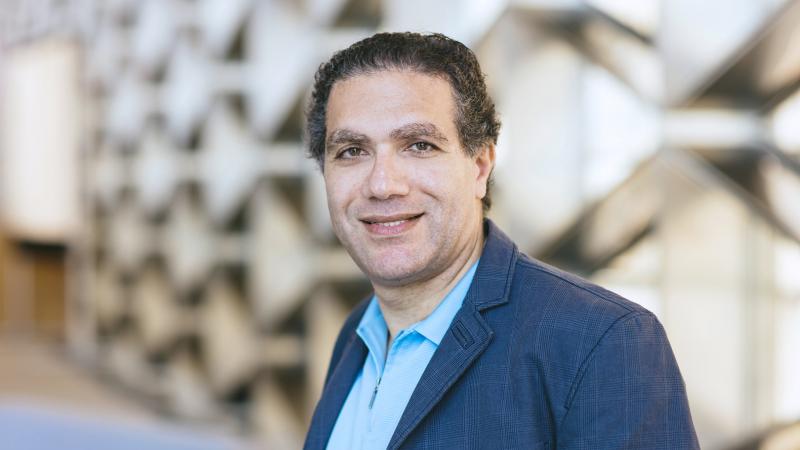© 2021 KAUST
A method for making ultrathin sensors for monitoring the health of crops could help farmers grow more food without putting extra demands on the land.
Intensive agriculture is already contributing to widespread biodiversity loss and climate change, yet growing populations continue to put pressure on farmers to produce more food. The challenge now lies in increasing agricultural output without clearing more land or applying excessive fertilizers. Precision farming is a promising solution that involves real-time monitoring of plant needs and responding to them with just the right amount of water, light or nutrients.
“Precision farming typically relies on soil-based sensors or drones fitted with special cameras,” says Ph.D. student Abdullah Bukhamsin, “but they cannot capture changes in the plant early enough to enable intervention.” Previous research has shown that measuring bioimpedance — how easily an electrical current passes through organic tissues — can reveal physiological information about a plant, from its nitrogen and water content to the presence of fungal infections or metal contaminants.
Plants, however, have a thick outer layer that blocks electrical signals, and bioimpedance sensors must pierce the surface without affecting the properties they wish to measure. It remains difficult to manufacture instruments tiny and thin enough to do this job.
Read the full article
